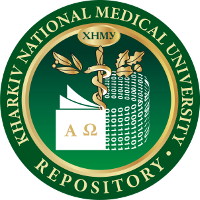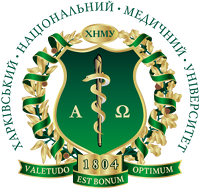Please use this identifier to cite or link to this item:
http://repo.knmu.edu.ua/handle/123456789/3994Full metadata record
| DC Field | Value | Language |
|---|---|---|
| dc.contributor.author | Пасечник, Ирина Петровна | - |
| dc.contributor.author | Pasichnyk, Iryna | - |
| dc.date.accessioned | 2013-10-22T13:51:15Z | - |
| dc.date.available | 2013-10-22T13:51:15Z | - |
| dc.date.issued | 2013 | - |
| dc.identifier.citation | Пасечник И. П. Тип психологического компонента гестационной доминанты и уровень материнской компетентности как факторы риска формирования синдрома жестокого обращения с детьми / И. П. Пасечник // Педиатрия. Восточная Европа – 2013. – № 3 (03). – С. 71–79. | uk_UA |
| dc.identifier.issn | 2307-4345 | - |
| dc.identifier.uri | https://repo.knmu.edu.ua/handle/123456789/3994 | - |
| dc.description.abstract | В статье представлена информация о роли психологического компонента гестационной доминанты (ПКГД) и уровня материнской компетентности в формировании синдрома жестокого обращения с детьми. В исследуемой группе (83) выявлено 54,2% беременных с оптимальным типом ПКГД, что характеризует их адекватное отношение к беременности, исходное симбиотическое единство матери и пренейта. Варианты ПКГД, относящиеся к группам риска, были представлены в исследуемой группе у 38,6% беременных эйфорическим типом, у 4,8% – гипогестогнозическим, у 2,4% – тревожным. В сочетании с уровнем материнской компетентности в вопросах здоровья и развития детей тип ПКГД может обуславливать особенности течения беременности, родов и характер постнатальных взаимоотношений в диаде. Низкий уровень материнской компетентности выявлен у 60,2% (50) респондентов. Положительную умеренную ассоциативную связь с низким уровнем материнской компетентности имеют оптимальный и гипогестогнозический типы ПКГД. Низкий уровень материнской компетентности в вопросах здоровья и развития ребенка и варианты ПКГД, относящиеся к группе риска, могут формировать психологическую и социальную основу синдрома жестокого обращения с детьми в контексте пренебрежения их нуждами (Т74.0 – МКБ-10). The article presents information about the role of the psychological component of gestational dominanta (PCGD) and the level of maternity competence in the forming of child abuse and neglect syndrome. Among 83 respondents we identified 54,2% pregnant who have the optimal type of PCGD, indicating adequate to pregnancy, symbiotic unity of the mother and prenate, and guarantee child’s health and development. Types of PCGD that belong to risk groups were represented in 38,6% pregnant an euphoric type, in 4,8% pregnant – a gypogestognozic, and in 2,4% pregnant an anxious type. In combination with the level of maternal competence in problems of child’s health and development, the psychological component of gestational dominanta can determines the course of pregnancy, childbirth and postnatal relationships in the dyad. A low level of maternal competence was identified in 60,2% (50) of the respondents. Optimal and gypogestognozic types have a moderate positive association link with the low level of maternal competence. Low level of maternal competence in children's health and development and the risk type of the psychological component of gestational dominanta may form psychological and social basis of the syndrome of child abuse in the context of abandonment and neglect (T74.0 – ICD-10). | uk_UA |
| dc.language.iso | ru | - |
| dc.subject | психологический компонент | uk_UA |
| dc.subject | гестационная доминанта | uk_UA |
| dc.subject | синдром жестокого обращения с детьми | uk_UA |
| dc.subject | материнская компетентность | uk_UA |
| dc.subject | первичная медико-санитарная помощь | uk_UA |
| dc.subject | psychological component | uk_UA |
| dc.subject | gestational dominanta | uk_UA |
| dc.subject | syndrome of child abuse and neglect | uk_UA |
| dc.subject | maternal competence | uk_UA |
| dc.subject | primary health care | uk_UA |
| dc.title | Тип психологического компонента гестационной доминанты и уровень материнской компетентности как факторы риска формирования синдрома жестокого обращения с детьми | uk_UA |
| dc.title.alternative | The type of the psychological component of gestational dominanta and the level of maternity competence as risk factors of the formation of the syndrome of child abuse and neglect | uk_UA |
| dc.type | Article | uk_UA |
| Appears in Collections: | Наукові праці. Кафедра загальної практики – сімейної медицини та внутрішніх хвороб | |
Files in This Item:
| File | Description | Size | Format | |
|---|---|---|---|---|
| Психологический компонент гестационной доминанты.pdf | 169,04 kB | Adobe PDF |  View/Open |
Items in DSpace are protected by copyright, with all rights reserved, unless otherwise indicated.

